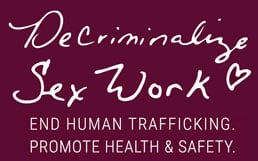Opinion: Sex-worker immunity would have helped Gilgo Beach probe | Newsday
By Melissa Sontag Broudo
Guest essay
Updated July 25, 2023 7:36 pm
The recent arrest of Rex A. Heuermann in the Gilgo Beach murder investigation has residents expressing relief that a killer has finally been apprehended.
But many are asking why it took so long. One significant reason is the dysfunctional relationship law enforcement has with sex workers. The trajectory of this case illustrates the need for police to listen to sex workers. Ideally, the recent news that Suffolk County Sheriff Errol Toulon Jr. is interviewing incarcerated sex workers who had contact with Heuermann signifies the start of an effort to improve law enforcement’s relationship with them.
When bodies first turned up on Gilgo Beach, the Suffolk County Police Department, under the leadership of now-disgraced former Police Chief James Burke, refused to grant sex workers immunity from prostitution charges if they came forward with information. Had law enforcement prioritized potential leads over arresting sex workers, this case might have been resolved years ago.
To add insult to injury, Dominick Varrone, then Suffolk’s chief of detectives, suggested at a news conference that the general public could remain at ease because the killer was only targeting a very specific type of individual. This claim, dismissive of the value of the lives already lost, and disrespectful to their suffering families, reflected a culture of dismissiveness of sex workers.
In contrast to Burke, current Police Commissioner Rodney K. Harrison took the case more seriously, reviving the investigation and working collaboratively with the victims’ families. His actions ultimately led to Heuermann’s arrest.
Sadly, the dysfunctional prejudices and deficient policies in Suffolk that left this alleged killer on the loose are apparent across the state.
Because many in law enforcement place little value on the lives of sex workers, they are rarely willing to work with them to resolve crimes, let alone grant them immunity to provide valuable information and testimony. This makes it unlikely sex workers will approach law enforcement about crimes they have observed, or have been subject to, leaving them and the community at large at greater risk.
While the Gilgo Beach case was a law enforcement failure, the actions that led to Heuermann’s arrest reflect enlightened law enforcement practices that provide hope for catching predators more quickly. Hopefully, Toulon’s information-gathering from sex workers can help lead to further charges against Heuermann or other killers.
A huge step in support of this enlightenment would be enacting state legislation, introduced in the State Senate and Assembly, to provide immunity for sex workers who come forward with evidence of a crime.
This legislation, modeled after a successful New York law that provides immunity for users of illegal substances who report a crime, would provide sex workers with protection from arrest for prostitution if they come forward to report crimes. Nine states have passed similar immunity laws in recent years, and several other states introduced legislation this year.
Criminalizing and stigmatizing sex workers does not make anyone safer. It is time New York lawmakers ensure that the most heinous crimes never again go unsolved because those who have information are stigmatized and devalued. Laura Mullen, co-founder of the Survivor Advisory Board and an anti-trafficking services advocate at the Empowerment Collaborative of Long Island-Vibes in Suffolk County, recently said, “The immunity bill passing will help others like me who were victims. I felt like my voice didn’t matter, and I didn’t feel safe enough to speak about the unthinkable acts committed around me and to me.”
Our state lawmakers should heed Mullen’s words and enact the immunity bill when they return in January.
This guest essay reflects the views of Melissa Sontag Broudo, legal director of Decriminalize Sex Work.
There has been a lot of talk about prostitution in Metro Detroit lately — Is it time to legalize it? | wwj newsradio 950
The Victims on Gilgo Beach | The Brian Lehrer Show on New York Public Radio
July 18, 2023
New York Public Radio’s “The Brian Lehrer Show” covers the lives of the victims found on Gilgo Beach and includes an interview with Crystal DeBoise. Listen here.

The DC Circuit just upheld a controversial law aimed at protecting sex trafficking victims … | Insider
Voice of Maine’s ‘GHRT Rewinds’ Hosts DSW’s Ariela Moscowitz
June 7, 2023
WVOM’s George Hale & Rick Tyler interview DSW’s Ariela Moscowitz on Voice of Maine’s “GHRT Rewinds” for June 7, 2023. Listen here or download it here.

Maine bill partially decriminalizing prostitution faces new backlash | Bangor Daily News
Decriminalize prostitution? Massachusetts lawmakers weigh bills amid deep divide in sex industry | WCVB 5
Las dos caras del trabajo sexual en NY | El Diario
Making Sex Work an Honest Business Makes Communities Safer | New York Law Journal
Making Sex Work an Honest Business Makes Communities Safer
Those of us with the power to defend individuals — or to change laws — should vehemently support the full decriminalization of consensual adult prostitution, a Manhattan civil rights attorney writes.
February 27, 2023 at 11:15 PM
6 minute read
Commentary
By Cary London | February 27, 2023 at 11:15 PM
The decriminalization of sex work is an unexpected, hot-button legal issue for 2023.
As a civil rights attorney with a background in public defense, I have seen the impact of systemic abuse on those who are the most vulnerable — sex workers. Sex work, a broad umbrella term that encompasses all forms of erotic labor, has and will always continue to exist.
Those of us with the power to defend individuals — or to change laws — should vehemently support the full decriminalization of consensual adult prostitution. Prohibition does not work. It makes people’s lives more dangerous.
From the personal costs (arrest, violence, stigma) to the public (taxes, police resources, court resources), it is time for New York to take its place as a progressive leader and decriminalize prostitution.
Decrim NY, a coalition of advocates and organizations, is lobbying this week Albany in support of Senate Bill S.4396, which is sponsored by State Sen. Julia Salazar, D-Brooklyn.
What I have witnessed on a day-to-day basis in court — that criminalization is immensely harmful — is supported by research. Data from around the world shows that the decriminalization of prostitution increases public health and safety and reduces trafficking and exploitation. The World Health Organization, Amnesty International and the ACLU are just some of the organizations calling for decriminalization.
Go after the John or the Jane? Opponents of decriminalization argue that removing criminal penalties for buying and selling sex will allow traffickers to act with impunity — the data shows this is simply not the case.
Even more absurd is the theory that the commercial sex industry can be abolished through a policy framework commonly referred to as the “End Demand Model,” the “Entrapment Model,” the “Nordic Model” and, in New York, the “Equality Model.”
This policy, currently making its way through the New York State Legislature (Senate Bill S.1352, sponsored by State Sen. Liz Krueger, D-Manhattan) removes criminal penalties for selling sex, but not for buying. Data from countries where this model has been introduced prove its failure to increase public health and safety and to decrease trafficking.
In Norway, after the Entrapment Model was implemented, sex workers reported higher levels of anxiety and unease, as well as increased stigmatization and have been subject to heightened rates of anti-social and nuisance behavior.
Compelling data compiled by national advocacy organization Decriminalize Sex Work (DSW) shows the urgent need to decriminalize both the buying and selling of sex in New York.
In “By the Numbers: New York’s Treatment of Sex Workers and Trafficking Survivors,” DSW sought to determine the efficacy and social costs of policing prostitution by examining trends in arrest and conviction rates for both prostitution and human trafficking offenses in New York State.
One of the publication’s primary conclusions is the imminent need to decriminalize sex work in New York State and around the country. While New York has made critical reforms in its treatment of sex workers and human trafficking survivors in recent decades, chief among them the repeal of Penal Law Section 240.37 criminalizing loitering for the purpose of engaging in a prostitution offense and the expansion of vacatur eligibility for survivors of human trafficking, the stigmatization and marginalization of sex workers persists with detrimental effects for the health and safety of entire communities.
Sex workers and service providers agree that the decriminalization of consensual, adult sex work is the only way to dismantle the institutional oppression of these communities and combat stigma and exploitation in commercial sex. The data reveals that, though arrest rates for prostitution and related crimes are declining, those arrests have seemingly shifted to people working at unlicensed massage parlors, locations the New York City Police Department’s Vice Squad regularly raid as a result of anti-Asian bias and discrimination.
Only in recent years have the number of arrests for purchasing or aiding prostitution come close to arrests for solicitation offenses. The most damaging impacts of criminalization are felt by the communities with the greatest vulnerability. DSW’s analysis demonstrates that, even if arrest and conviction rates are slowing, racial and gender biases are as strong as ever. 98% and 97% of New York City arrests in 2019 for prostitution and loitering for the purpose of engaging in prostitution, respectively, were of female-identified individuals.
Similarly, 91% and 93% were people of color. Even more severe, in the past 10 years, 90% of arrests for patronizing a prostitute in the third degree were Black, indigenous and people of color — despite the fact that national studies report between 80-85% of sex buyers are white men.
Convictions showed similar bias. Over the last decade, the Manhattan District Attorney’s Office has taken critical steps to recognize sex worker rights. In April 2021, former District Attorney Cyrus Vance Jr. announced that his office would no longer prosecute prostitution or unlicensed massage, a statute used largely to arrest East Asian immigrants working in the massage business.
Last year, Manhattan District Attorney Alvin Bragg announced that prostitution is among the charges his office will no longer prosecute. Though fewer arrests and these DA policies may present a rosy picture, alarming trends, including heightened arrests of Asian immigrant women in massage parlors and widespread corruption and violence by NYPD Vice squad continue.
ProPublica reported that “…cops often earned overtime for making these [prostitution related arrests], giving them a financial incentive to arrest as many people as possible. And there was no real check on the conduct of the officers. In those rare cases when defense attorneys challenged the arrest, cases were often dropped, keeping the undercover cop’s identity and tactics secret.” Further, the city and state lack a cohesive, consistent approach, leaving a patchwork of justice that is woefully uneven.
Senate Bill S.4396 is supported by sex workers, public health researchers and human rights advocates and would repeal laws criminalizing consensual adult sex work, grounding our policies in data and promoting equal treatment under the law for all New Yorkers.
Make an honest business out of sex work — and our communities will be safer.
